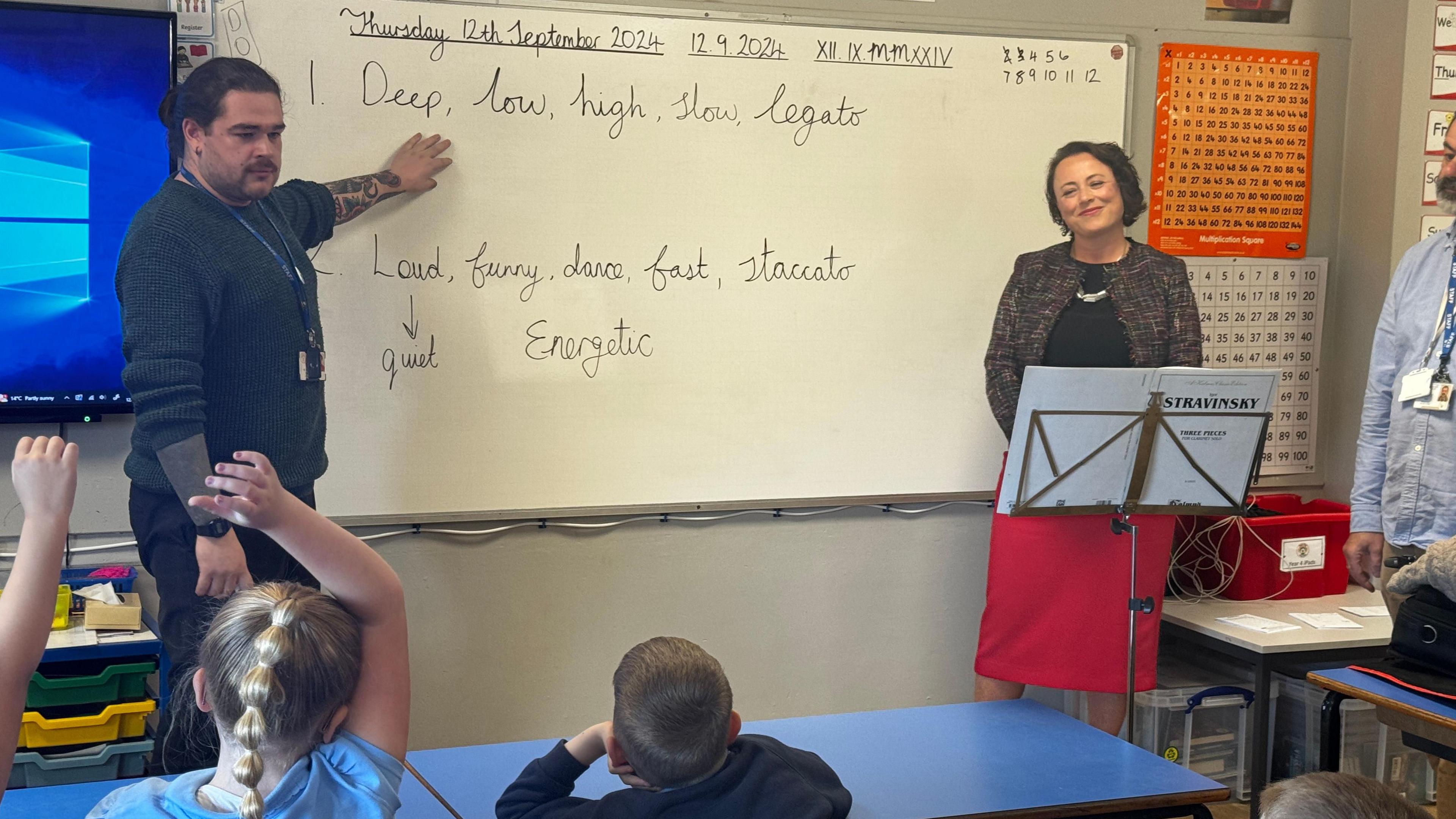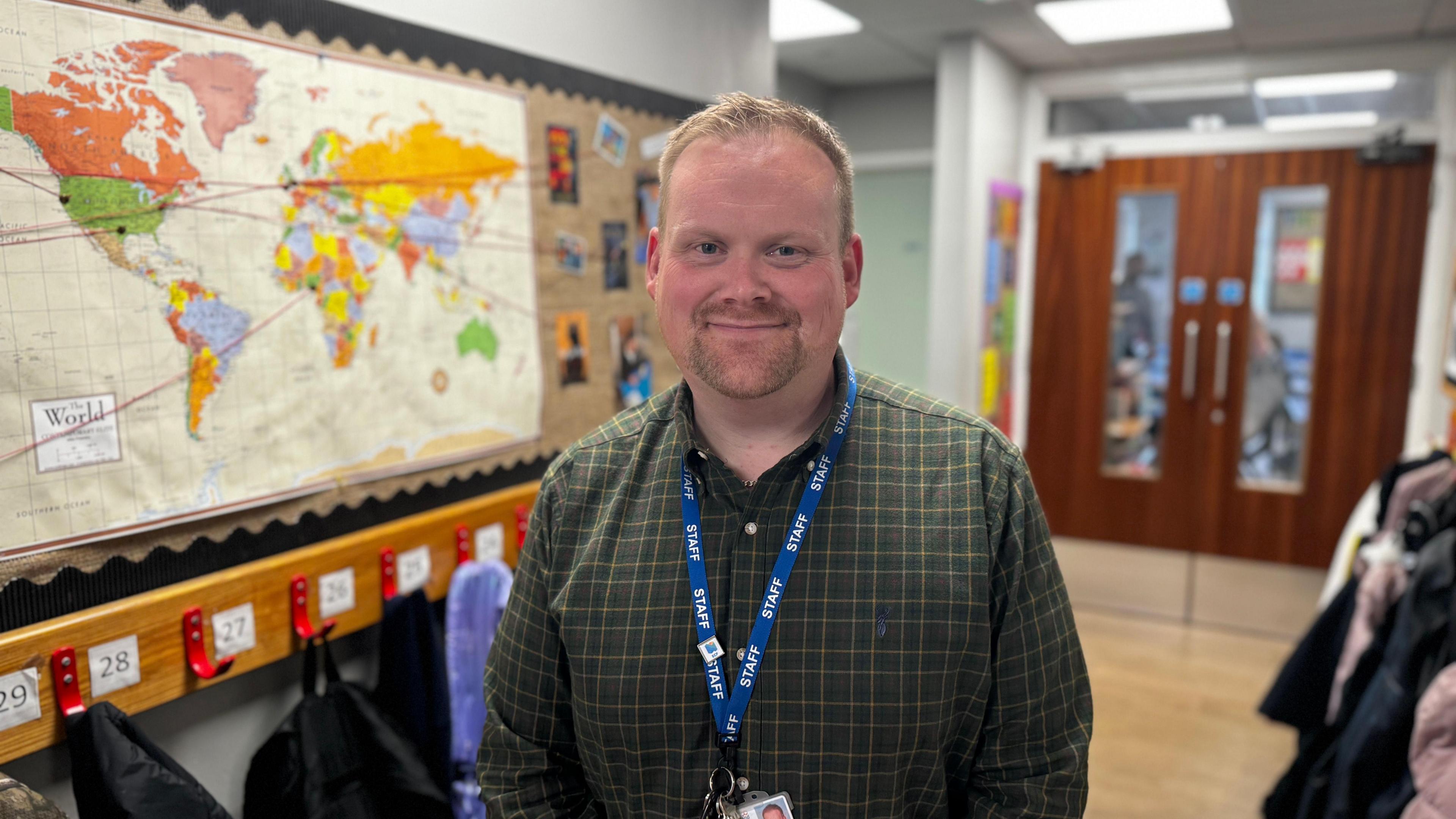City schools to receive extra music funding

The Department for Education has named Sunderland among 12 places across the UK to receive extra music funding
- Published
A city with high levels of deprivation will be given additional funding for music in schools.
The Department for Education has named Sunderland among 12 places across the UK where further funding will be allocated to teach music.
The scheme, which will run for up to four years, will see extra resources provided, including one-to-one sessions and targeted tuition.
Newcastle Tyne North MP and Schools Minister Catherine McKinnell said it would help to "break down barriers" and help families meet the costs for their children to perform.
The programme is being piloted at some schools on Wearside, including Barmston Village Primary School in Washington.
Deputy head teacher Jack Cunningham said the school was in the top 5% of deprived areas in the country and the scheme would make a real difference.
"Our children absolutely love and thrive with music," he said.
"All of our children jumped at the opportunity to get involved."

Mr Cunningham said the scheme would make a real difference
Charity Young Sounds UK manages the scheme and will deliver it alongside Sunderland Music Hub.
It will work to identify children with particular musical potential, who are not able to access musical training, and support them with free instrumental or singing tuition.
Education Minister Catherine McKinnell said: "We've seen the gap grow for far too long between children that come from maybe a more affluent background, being able to access music, and children that don't have that level of access just missing out.
"Sunderland has a really rich music culture. It's really great to be here, celebrating that, but also tapping into it as a way of understanding how do we reach as many children as possible."
Mr Cunningham added music sessions also helped children do better in the classroom.
"We are seeing children in our school that might feel nervous in lessons, they might feel they're not achieving as well, but if they show that little spark with music, we can give them that opportunity and that output and that really drives them forward," he said.
Follow BBC Sunderland on X, external, Facebook, external, Nextdoor and Instagram, external. Send your story ideas to northeastandcumbria@bbc.co.uk.
Related topics
More stories from BBC North East and Cumbria
- Published2 July 2024
